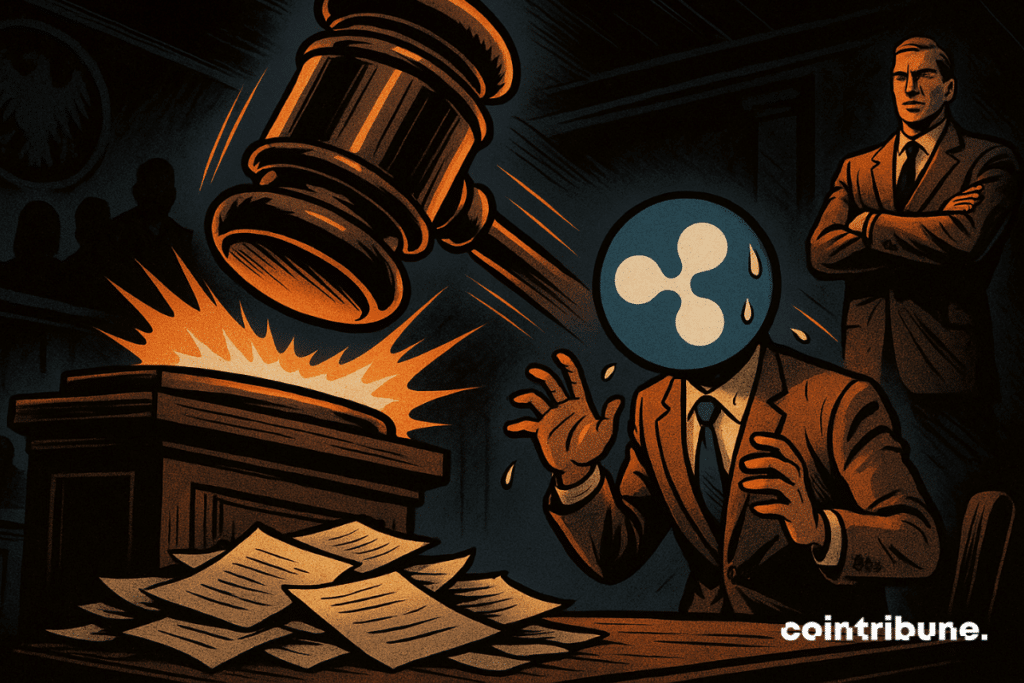Surviving Lawsuits Isn’t Resilience: SWIFT CIO on Ripple and Institutional Trust
Ripple’s prolonged legal dispute with the U.S. Securities and Exchange Commission (SEC) recently came to an end, closing a chapter that had drawn significant attention across the crypto and financial sectors. While many interpreted the outcome as proof of the company’s resilience, Tom Zschach, Chief Innovation Officer at SWIFT, saw it differently. He argued that surviving lawsuits does not demonstrate resilience, stressing instead that true adoption in finance relies on trust, compliance, and shared governance.

In brief
- Surviving lawsuits does not demonstrate true resilience, says SWIFT CIO.
- Resilience comes from neutral, shared governance, not courtroom wins.
- Supporters call XRP “battle-hardened” after years of regulatory scrutiny.
Technology as Foundation, Trust as the Key to Adoption
The debate started when Zschach published a reflection on how banks approach new technologies. He explained that every major shift in finance begins with technology laying the foundation, but adoption only happens once trust, enforceability, and compliance are established.
He referenced past examples—like internet-based payments in the 2000s and blockchain innovations such as stablecoins and ICOs—where financial institutions remained on the sidelines not because they didn’t understand the technology, but because the trust framework wasn’t yet in place.
Building on this point, Zschach described public blockchains as a “substrate”—a base layer that enables execution at scale. He emphasized that while the technology provides the foundation, institutions will only actively build and operate on top of it once a trust layer exists, incorporating legal enforceability, compliance, and operational safeguards to make it reliable for real-world use.
Ripple Praised as “Battle-Hardened”
The comment section under Zschach’s post quickly turned into a debate. A Ripple supporter responded by praising the company’s track record, claiming XRP had already proven itself uniquely durable. They pointed out that Ripple had endured nearly five years of regulatory scrutiny while still pushing ahead with solutions for cross-border payments.
The supporter further argued that Ripple has, for over a decade, emphasized compliance, trust, and interoperability—qualities that distinguish it from other blockchain projects that collapsed under regulatory or legal pressure. This long-standing approach, they suggested, made Ripple “battle-hardened” and better prepared to work with institutions.
Ripple’s Courtroom Survival Doesn’t Equal Resilience
Zschach’s reply was pointed and quickly became the central focus of the discussion. He dismissed the notion that Ripple’s ability to endure lawsuits was evidence of strength. Instead, he argued that resilience in financial systems comes from neutral, shared governance—structures where no single entity holds control.
He added that institutions have no interest in building their settlement processes on a competitor’s platform. For Zschach, compliance also has to be understood correctly: it is not about one company persuading regulators to allow it to operate.
Surviving lawsuits isn’t resilience. Neutral, shared governance is. Institutions don’t want to live on a competitor’s rails.
Tom Zschach
Rather, it is about entire industries aligning around shared rules and standards that do not depend on any one balance sheet.
Clarifying the Issue: Risk Over Decentralization
As the discussion spread, Zschach elaborated further. He said the real question was not whether a network was centralized or decentralized, but how banks manage risk in their settlement flows.
Zschach pointed out that banks are generally cautious about using assets outside their own balance sheets, even on networks designed to be neutral. They tend to favor settling in money they issue themselves, which helps manage risk and maintain control over liquidity.
In this context, he described Ripple’s USD stablecoin as noteworthy, since it appears closer to what banks recognize as safe and reliable. Still, he cautioned that institutions may continue to prefer settling in their own issued money, which is why tokenized deposits are likely to remain central to institutional settlement. Meanwhile, Ripple’s XRP has gained 1% over the past 24 hours, trading at $2.81 at the time of writing.
Maximize your Cointribune experience with our "Read to Earn" program! For every article you read, earn points and access exclusive rewards. Sign up now and start earning benefits.

Ifeoluwa specializes in Web3 writing and marketing, with over 5 years of experience creating insightful and strategic content. Beyond this, he trades crypto and is skilled at conducting technical, fundamental, and on-chain analyses.
The views, thoughts, and opinions expressed in this article belong solely to the author, and should not be taken as investment advice. Do your own research before taking any investment decisions.